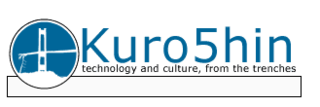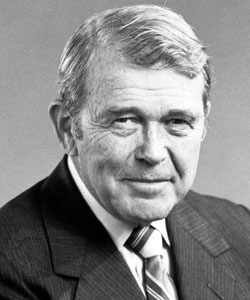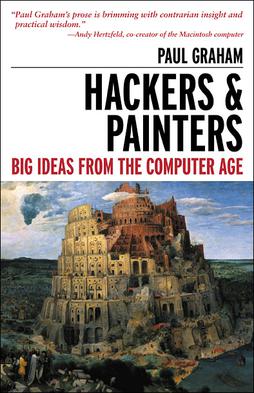Related Research Articles
Slashdot is a social news website that originally billed itself as "News for Nerds. Stuff that Matters". It features news stories on science, technology, and politics that are submitted and evaluated by site users and editors. Each story has a comments section where users can add online comments.

Rob Malda, also known as CmdrTaco, is an American Internet content author, and former editor-in-chief of the website Slashdot.

Kuro5hin was a collaborative discussion website founded by Rusty Foster in 1999, having been inspired by Slashdot. Articles were created and submitted by users and submitted to a queue for evaluation. Site members could vote for or against publishing an article and once the article had reached a certain number of votes, it was published to the site or deleted from the queue. The site has been described as "a free-for-all of news and opinion written by readers". Around 2005, its membership numbered in the tens of thousands.

William Redington Hewlett was an American engineer and the co-founder, with David Packard, of the Hewlett-Packard Company (HP).

Agilent Technologies, Inc. is a global company headquartered in Santa Clara, California, that provides instruments, software, services, and consumables for laboratories. Agilent was established in 1999 as a spin-off from Hewlett-Packard. The resulting IPO of Agilent stock was the largest in the history of Silicon Valley at the time. From 1999 to 2014, the company produced optics, semiconductors, EDA software and test and measurement equipment for electronics; that division was spun off to form Keysight. Since then, the company has continued to expand into pharmaceutical, diagnostics & clinical, and academia & government (research) markets.

Marc Lowell Andreessen is an American businessman and former software engineer. He is the co-author of Mosaic, the first widely used web browser with a graphical user interface; co-founder of Netscape; and co-founder and general partner of Silicon Valley venture capital firm Andreessen Horowitz. He co-founded and later sold the software company Opsware to Hewlett-Packard; he also co-founded Ning, a company that provides a platform for social networking websites. He is an inductee in the World Wide Web Hall of Fame. Andreessen's net worth is estimated at $1.7 billion.
Open-source journalism, a close cousin to citizen journalism or participatory journalism, is a term coined in the title of a 1999 article by Andrew Leonard of Salon.com. Although the term was not actually used in the body text of Leonard's article, the headline encapsulated a collaboration between users of the internet technology blog Slashdot and a writer for Jane's Intelligence Review. The writer, Johan J. Ingles-le Nobel, had solicited feedback on a story about cyberterrorism from Slashdot readers, and then re-wrote his story based on that feedback and compensated the Slashdot writers whose information and words he used.
The Linux kernel mailing list (LKML) is the main electronic mailing list for Linux kernel development, where the majority of the announcements, discussions, debates, and flame wars over the kernel take place. Many other mailing lists exist to discuss the different subsystems and ports of the Linux kernel, but LKML is the principal communication channel among Linux kernel developers. It is a very high-volume list, usually receiving about 1,000 messages each day, most of which are kernel code patches.

LinuxTag was an annual Free and Open Source Software (FOSS) conference and exposition with an emphasis on Linux but also BSD descendants located in Germany. The name is a compound with the German Tag meaning "Day", as it was initially a single day conference, but soon extended to multiple days, then always including a weekend. LinuxTag was the world's largest FLOSS conference and exhibition for years and aimed to provide a comprehensive overview of the Linux and Free Software market as well to promote contacts between users and developers. With this broad approach LinuxTag was one of the most important events of this kind.
Keith Packard is a software developer, best known for his work on the X Window System.
In journalism, a source is a person, publication, or knowledge of other record or document that gives timely information. Outside journalism, sources are sometimes known as "news sources". Examples of sources include official records, publications or broadcasts, officials in government or business, organizations or corporations, witnesses of crime, accidents or other events, and people involved with or affected by a news event or issue.

MIT Technology Review is a bimonthly magazine wholly owned by the Massachusetts Institute of Technology, and editorially independent of the university. It was founded in 1899 as The Technology Review, and was re-launched without The in its name on April 23, 1998, under then publisher R. Bruce Journey. In September 2005, it was changed, under its then editor-in-chief and publisher, Jason Pontin, to a form resembling the historical magazine.

Jon Katz is an American journalist, author, and photographer. He was a contributor to the online magazine HotWired, the technology website Slashdot, and the online news magazine Slate. In his early career as an author he wrote a series of crime novels and books on geek subculture. More recent works focus on the relationship between humans and animals.
SCIgen is a paper generator that uses context-free grammar to randomly generate nonsense in the form of computer science research papers. Its original data source was a collection of computer science papers downloaded from CiteSeer. All elements of the papers are formed, including graphs, diagrams, and citations. Created by scientists at the Massachusetts Institute of Technology, its stated aim is "to maximize amusement, rather than coherence." Originally created in 2005 to expose the lack of scrutiny of submissions to conferences, the generator subsequently became used, primarily by Chinese academics, to create large numbers of fraudulent conference submissions, leading to the retraction of 122 SCIgen generated papers and the creation of detection software to combat its use.

Hackers & Painters: Big Ideas from the Computer Age is a collection of essays from Paul Graham discussing hacking, programming languages, start-up companies, and many other technological issues. "Hackers & Painters" is also the title of one of those essays. The image on its cover is 'The Tower of Babel' by Pieter Bruegel.
Patricia C. Dunn was the non-executive chairman of the board of Hewlett-Packard (HP) from February 2005 until September 22, 2006, when she resigned her position.

The Hewlett-Packard Company, commonly shortened to Hewlett-Packard or HP, was an American multinational information technology company headquartered in Palo Alto, California. HP developed and provided a wide variety of hardware components, as well as software and related services to consumers, small and medium-sized businesses (SMBs), and fairly large companies, including customers in government, health, and education sectors. The company was founded in a one-car garage in Palo Alto by Bill Hewlett and David Packard in 1939, and initially produced a line of electronic test and measurement equipment. The HP Garage at 367 Addison Avenue is now designated an official California Historical Landmark, and is marked with a plaque calling it the "Birthplace of 'Silicon Valley'".
The Government Information Awareness (GIA) project was an initiative of the MIT Media Lab, designed "to provide American citizens with digital tools for participating in the democratic process."

The Wire is an Indian nonprofit news and opinion website. It was founded in 2015 by Siddharth Varadarajan, Sidharth Bhatia, and M. K. Venu. It counts among the news outlets that are independent of the Indian government, and has been subject to several defamation suits by businessmen and politicians.
References
- ↑ Pontin, Jason. "Did Michelle Delio Fabricate Sources?". MIT Technology Review.
- ↑ Delio, Michelle (November 5, 2002). "Mitnick's 'Lost Chapter' Found". Wired– via www.wired.com.
- ↑ Penenberg, Adam. "Michelle Delio Review" (PDF). Archived from the original (PDF) on 2012-11-04. Retrieved 2017-03-10.
- ↑ "What We Can Learn From Michelle Delio". www.gelfmagazine.com.
- ↑ "Wired News Releases Source Review". Wired. May 9, 2005 – via www.wired.com.
- ↑ "Wired Amends Stories With Fabricated Quotes - Slashdot". slashdot.org. 10 May 2005.